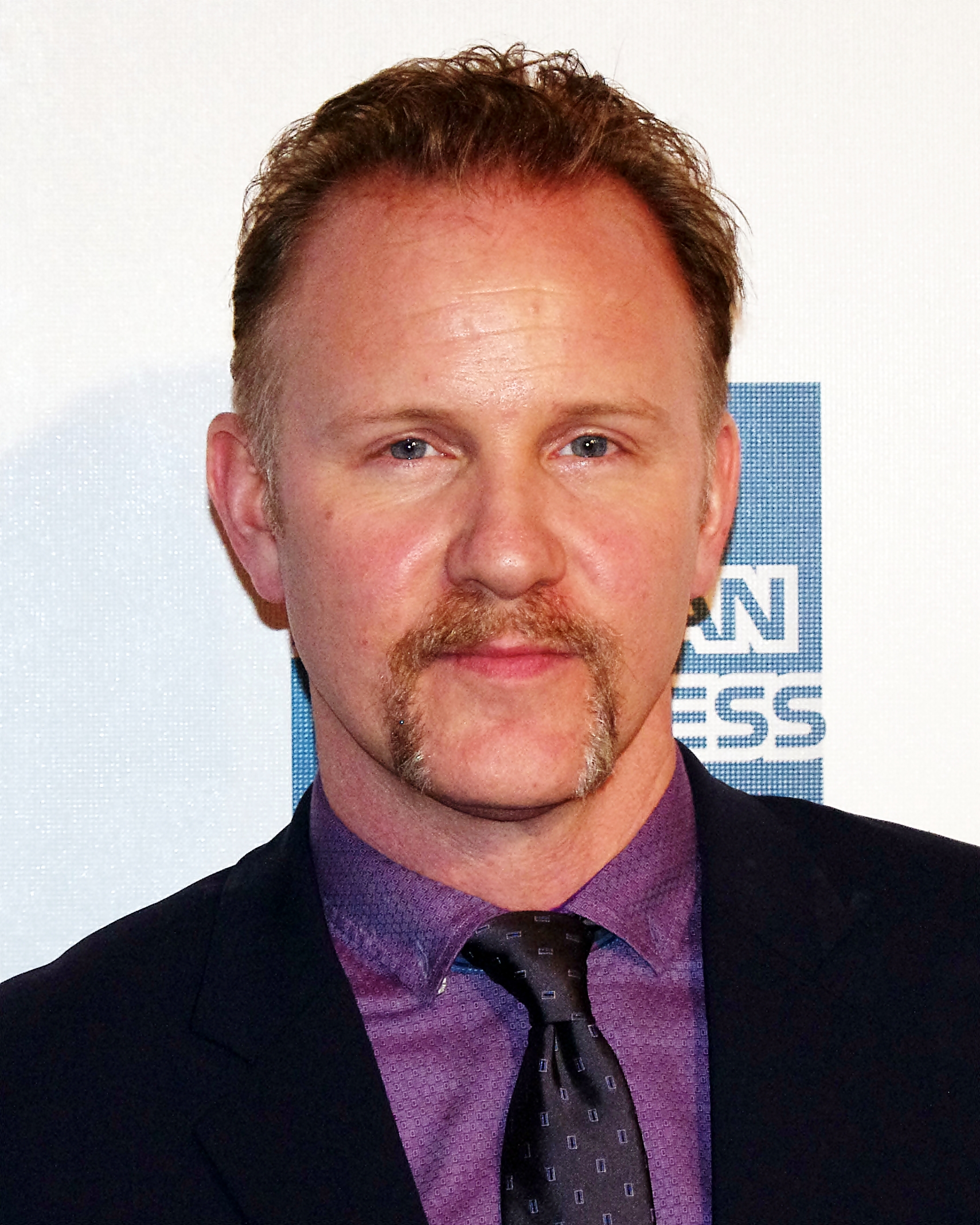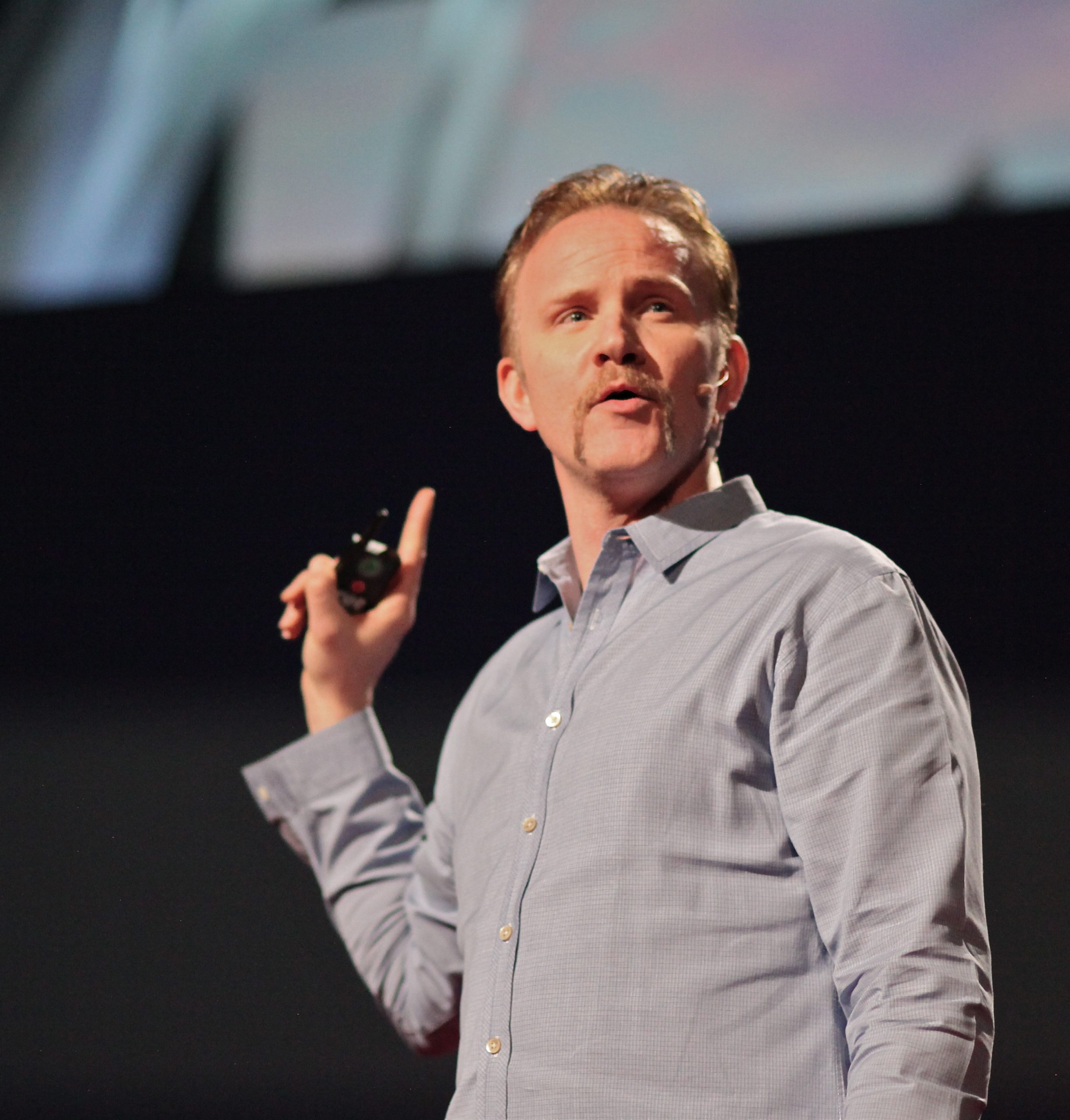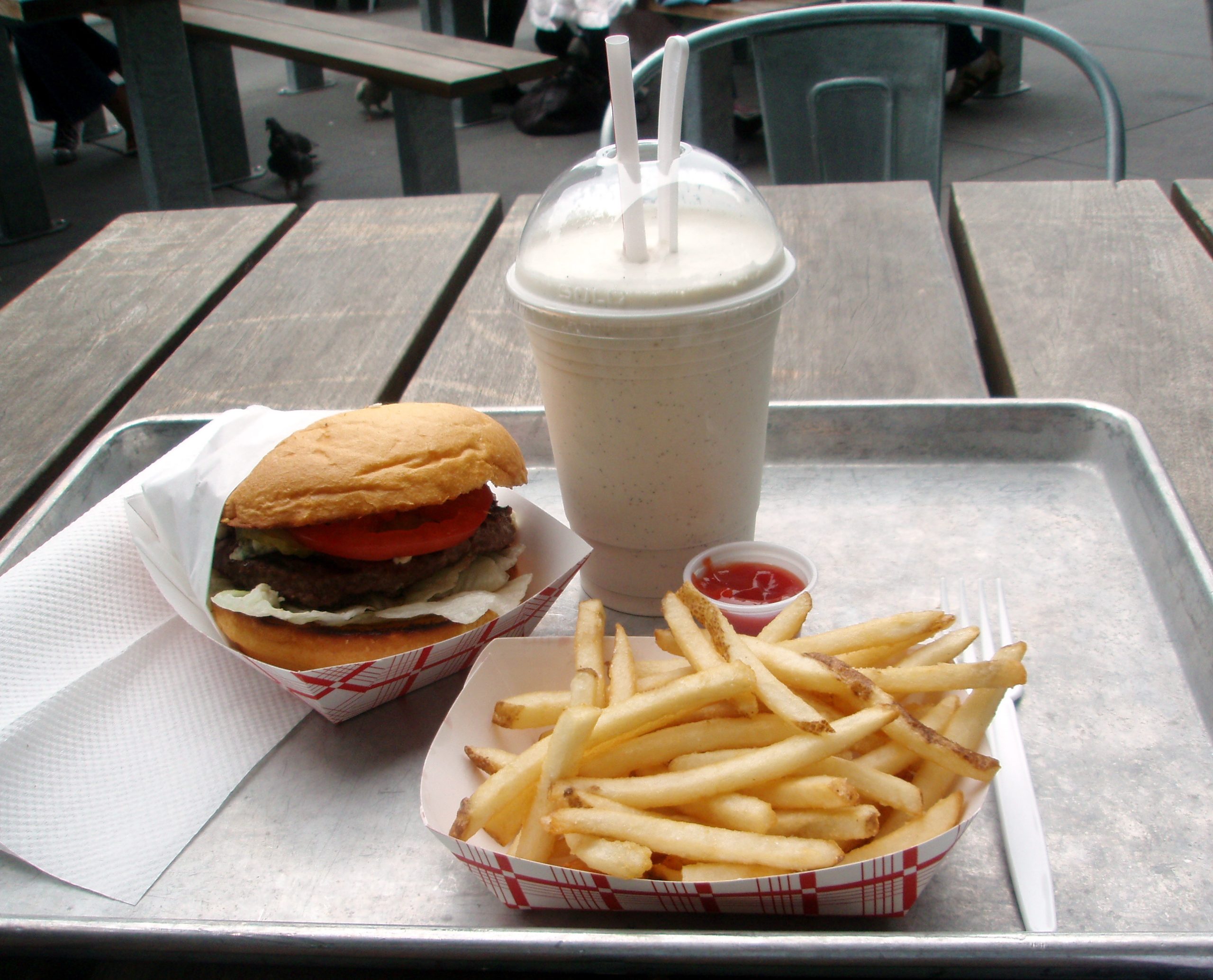Chapter 6: “Super Size Me”: The Documentary
Before You Read
Look at the picture.

- Is there a McDonald’s in your home country?
- Do you like to eat fast food? Why or why not?
- Why is fast food so popular in Canada? Explain your opinion.
Read

Morgan Spurlock was an American filmmaker. He liked to make educational films. One day while he was resting, Spurlock was thinking about fast food. He asked himself a question: “What would happen if I only ate fast food for one month?” This question produced an experiment. It also started a conversation around the world about diet and health.
“Super Size Me” is the name of Spurlock’s documentary. The film follows his experiment. Spurlock planned to eat only McDonald’s food for 30 days. He ate an average of 5,000 calories each day with no exercise routine. The film starts with Spurlock in good health. Multiple doctors checked; he was in good condition. Every day, Spurlock wrote about his feelings. He also wrote about what he experienced.

Spurlock recorded many changes in his life. One change was in his body. He gained a lot of weight. In fact, he gained 24 pounds in one month! His cholesterol levels increased; fast food was making Spurlock sick. Spurlock’s film is not just about physical changes. He also experienced changes in his mental health. He had mood swings. This means that one minute he felt happy, but the next moment he felt sad. His diet also interfered with his love life. Fast food influenced his mind and emotions.
The documentary focuses on the negative impact of fast food on people’s health. The film encourages viewers to think about the broader impact on society. The fast-food companies have a role in encouraging unhealthy eating habits. The film suggests that fast food companies, like tobacco firms, create products that are addictive and harmful. After its first showing, “Super Size Me” started a lot of discussions. The film influenced positive changes in how fast-food companies operate. Companies looked for solutions. For example, McDonald’s stopped offering their super-sized meals.
By the end of the 30 days, Spurlock’s health was very bad. It surprised the doctors. His experiment showed the dangers of eating a fast-food diet for just one month. Viewers considered the general public’s attitude towards food, and the effects it has on health.

The documentary is about the American diet. It focuses on the health problems that come with an unhealthy diet. Overeating is a big problem in North America. Spurlock’s film shows how fast food contributes to this problem. The film is engaging and surprising. It makes viewers think about their own eating habits.
Vocabulary
Attitude
Average
Effect
Impact
Mental
Physical
Positive
Produce
Rest
Solution
After You Read
- Does Morgan Spurlock’s experiment make you think about changing your own eating habits? Explain your answer.
- Some people think Morgan Spurlock’s experiment was not good. Can you think of a reason why?
- Which fast food restaurants promote healthy eating habits? How do they do that?
“McDonald’s” is a registered trademark of the McDonald’s Corporation.
Media Attributions
- Crowded McDonalds by Leonid Mamchenkov is licensed under CC BY 2.0.
- Brand Marketing by Steve Jurvetson is licensed under CC BY 2.0.
- Morgan Spurlock 2012 Shankbone.JPG by David Shankbone is licensed under CC BY 3.0.
- My healthy lunch has arrived by Steve Webster is licensed under CC BY 2.0.
References
Arizona State University. (2024). EdPlus Voiceover Generator [Voiceover audio generator].
Microsoft. (2023). Copilot [Large language model].
Super size me. (2024, July 4). In Wikipedia.
Artificial Intelligence Disclosure
- Microsoft Copilot was used as a brainstorming tool for this chapter.
- The Arizona State University EdPlus Voiceover Generator was used to create the audio recording of the reading. Adaptations include modification of speed and/or timing, and comping of output takes.
Rest - view the definition in the Collins Dictionary [New Tab]
Produce - view the definition in the Collins Dictionary [New Tab]
Average - view the definition in the Collins Dictionary [New Tab]
Physical - view the definition in the Collins Dictionary [New Tab]
Mental - view the definition in the Collins Dictionary [New Tab]
Impact - view the definition in the Collins Dictionary [New Tab]
Positive - view the definition in the Collins Dictionary [New Tab]
Solution - view the definition in the Collins Dictionary [New Tab]
Attitude - view the definition in the Collins Dictionary [New Tab]
Effect - view the definition in the Collins Dictionary [New Tab]

